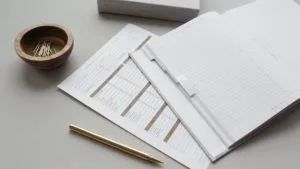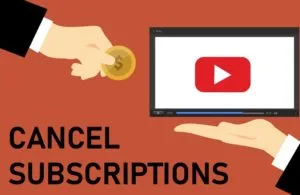Strategies to Stop Spending Leaks in Their Tracks
Do you have spending leaks in your budget that make it seem like your paycheck disappears as soon as it is deposited? Those spending leaks can disrupt your budget since you may not be aware that they exist. It’s natural to ignore the small ‘leaks’ in your budget. You use your money as you pay for rent, food, supplies, and make other important purchases. Due to these circumstances, it can be hard to track your spending effectively. Rather than spending lavishly, become aware and plug your spending leaks because money can be an important factor in an emergency or retirement planning.
What Does Plug Spending Leaks Mean?
Spending leaks are impulsive and non-necessity purchases, usually little, but routine impulse purchases. Plugging your spending leaks implies you’ll stop spending on things you don’t actually need. You might be amazed at the additional money you’ll hold after a month after you stop purchasing unnecessary things. It can also mean adjusting your spending by discovering a more desirable bargain on things you purchase.
Ask yourself what is essential and what isn’t for you, remember that it isn’t “bad” to pamper yourself. The point is to manage those expenditures, so you don’t get carried away and spend your money on things that don’t really matter to you. For example, if you love clothes – spend your money on clothes but don’t waste it on something that isn’t as important to you. It is amazing how quickly small purchases can add up like a daily trip to Starbucks.
In the U.S. the average price of a Starbucks drink is $2.75. This seems like nothing but if you grab one every day on your way to work, $2.75 x 5 days of the week x 52 weeks of the year = $715.00. Now think about how much you spend on eating out for lunch or dinner… Small purchases can really add up!
Ways To Plug Your Spending Leaks
Create a Budget
Among the major facets of finance is creating and sticking to a personal budget. It’s the core of good finances and what is measured, improves.
This act ensures you will have an ample amount of funds for essential things and a few of the items you want. If you are currently living paycheck to paycheck, creating a spending plan or budget plan will likewise help pull you out of debt or help you avoid it in the first place. It can also help in paying it down so you can build up a small amount of savings or emergency fund.
The 50/30/20 guideline is a system to designate your money based on three categories: 50% needs, 30% wants, and 20% financial goals. It’s not an absolute norm but more likely a simple benchmark to help you create financially healthy finances. At least save 20% from your earnings or salary. If you feel this is an easy goal for you, try increasing the 20% financial goals to 30% or even 40% to boost your retirement savings and investments.
Plan for emergencies
You must allocate a small portion of your income monthly for emergency funds. The purpose of this budget is to save routinely so that unforeseen expenditures (i.e., unusual medical bills, vehicle repairs or appliance replacement) are easier to handle.
Analyze your budget again; separate your necessities and non-necessity expenditures. Check the things you usually splurge money on that are nonessential and examine what you can lessen or remove completely.
You may need to review your income if you’re having difficulty allocating money to savings. Think of ways you can earn more money. It can be having a part-time job or working overtime. At Molen & Associates, we offer “Family Finance” appointments to help go over your budget, review debt payments and help you strategize to achieve your financial goals. This can be hard to do alone, so we help educate you and hold you accountable to your goals.
Track your spending
Tracking your spending is the simple, most reliable way to realize your purchasing habits, and it is also an essential aspect of budgeting and financial planning. Even if you’re not a budget person, you can still track your money with ease. There are simple apps to use like Mint.com if you don’t want to be glued to a spreadsheet.
You should know where your money goes. Begin by noting all the things you remember you spent (Mint does this part for you). Keeping a record of your spending pursuits for the whole day can help you be more conscious of where your money is going.
Look at your regular bills
Things such as loan payments, internet, television, and utilities can be the cause of shocking money leaks. If you are exceeding the plan you have or paying more than you actually use, it’s necessary to review your bills to ensure you’re getting the correct match for your your needs and your budget
Reduce costly habits
Lessen your everyday trips to stores or restaurants. Challenge yourself to make your meals instead of having food delivered or eating out.
Have a shopping list and Look for Deals
Making a list helps you hinder using money impromptu. Purchase only the things on the list. This technique prevents you from strolling in every aisle and from buying more than what’s needed.
- Consider coupons to save more
- Use discount offers and loyalty programs
- Buy at garage sales, second-hand shops, or street markets whenever it’s reasonable
If you feel like you lack the determination to adhere to your list, avoid the shop/market entirely.
Use Cash Only
While it is nice to build up credit card points, credit cards can fuel higher spending if not monitored. Constantly decide the amount of money you will need and bring only cash. You, somewhat, feel like you’re spending money if you settle your items with cash, instead of using a credit card. High-priced items can’t lure you. Use the Envelope Method for budgeting if the cash method is something you feel would help.
Stop the “Payday Syndrome”
Some people love to spend more on their pay day. Here’s a useful tip: after getting paid your wages, don’t immediately purchase any non-essentials, let it sit in your bank account for a day; this provides you a moment to consider what bills need to be settle, the amount that should go towards your savings, and helps to restrain splurging.
Cancel subscriptions that you no longer use 
Perhaps you’ve signed up for a free trial and forgot to cancel after the trial period ended or haven’t showed up in the gym since the day you registered. Whatever the reason, take a moment to call the membership office or log in to your account to revoke your account. It can be helpful to review your bank statements for a full year as some memberships are monthly and others are annual. This is an easy way to do one action and cut your spending into the future.
Stop Borrowing Money
Plugging those spending leaks prevents borrowing money at every available opportunity.
The average credit card debt in the U.S. is approximately $5,700, according to the Federal Reserve. This implies that more individuals are having problems paying their balance on a monthly basis. When a credit card account has a consistent balance, you’re paying a lot of unnecessary interest.
Always pay your credit cards off whenever plausible. If the debt is strangling your funds, you may be able to transfer that debt to your lower-rate loan and make payments to reduce the amount of your debt more quickly.
The less you borrow, the less interest you’ll need to pay.
Bottom Line
All is right with a bit of subjective spending. But, to manage it, you need a plan ready. Budgeting can help set the structure of your plan, and it helps you track your achievement as you strive to adhere to it.
We don’t expect you to know everything on your own. Call Molen & Associates for assistance today. The sooner you begin, the sooner you can be financially free. We have the skills, expertise, and background you need to build a strategic and coordinated plan that prevents spending leaks and helps you enjoy your life.
Call us now at (281)440-6279 and let’s work on your budget!

